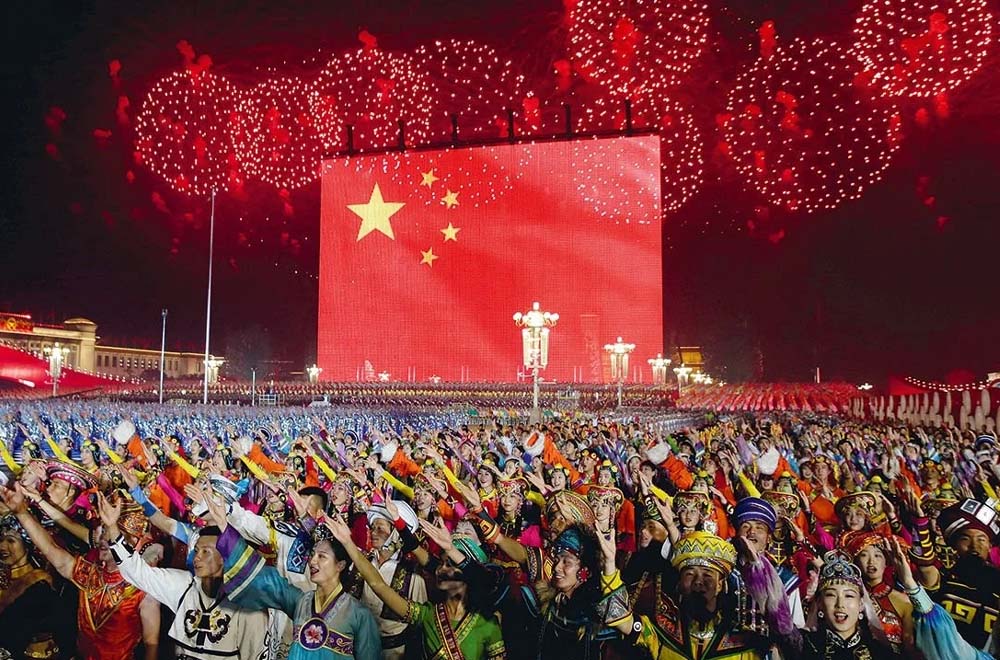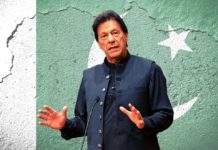isclaimer: The Eqbal Ahmad Centre for Public Education (EACPE) encourages critical and independent thinking and believes in a free expression of one’s opinion. However, the views expressed in contributed articles are solely those of their respective authors and do not necessarily reflect the position or policy of the EACPE.
The Chinese Communist Party marked its hundredth birthday with great fanfare on Thursday. Over the years, western observers have predicted its demise for multiple reasons, but much to their dismay, these predictions have been confounded by its growing popularity. With 92 million official members, the communist party is the 2nd largest and the most powerful political party in the world. This begs the question: With instability so deeply rooted in authoritarianism, how has the world’s most successful autocracy lasted for so long. The answer, surprisingly, is quite short – ruthlessness, ideological agility, and a crackdown on corruption and dissent.
Chinese President Xi Jinping, as expected, took the center stage at the centennial celebrations. He delivered a bombastic speech – denouncing the west for its messy democracy and stressing the superiority of China’s one party-state. The occasion could not have been timelier: the centenary of the communist party coincides with the pandemic raging across the globe. Even though the Chinese city of Wuhan was the ground zero of the Covid-19 pandemic, China has come out of it almost unscathed, with the only major economy to grow during the period. There were some whitewashing and hush ups initially, but China eventually managed to contain the virus as the west battled wave after wave of outbreaks.
The Chinese Communist Party has never shied from calling itself “great, glorious and correct”, and as it starts its second century, it has good reasons to brag. The party has ruled China for more than seven decades – and its popularity appears to be on the rise. Its Soviet and Korean counterparts have held power for slightly longer – 74 and 73 years respectively. But unlike China, no autocracy has been able to transform itself from a country racked with famine to the second-largest economy in the world that now threatens the dominance of the liberal international order. Not only has the party slashed all the predictions of its eventual collapse, it now controls the world’s largest armed forces and a cutting-edge technology that the west is now finding increasingly difficult to compete with.
The Chinese Communist Party has maintained a steady grip on power for three reasons. First, it is ruthless. Consider the Tiananmen Square massacre of 1989 when the People’s Liberation Army marched to central Beijing armed with tanks and machine guns and opened fire on thousands of pro-democracy protestors gathered on the square. Estimates of the death toll of the episode vary, with some putting it in hundreds and others at thousands.
Decades later, one would expect the party leaders to show a bit of remorse for the massacre, but that is hardly the case. The incumbent Chinese leaders show no signs of having any misgivings about the carnage they caused. If anything, they are proud of it. Xi has been frequently heard chastising his communist counterparts in the Soviet Union for not being “man enough to stand up and resist” as the party crumbled. By that, he meant that unlike us, the Soviets could not muster the courage to slaughter unarmed, peaceful protesters with guns and tanks.
The second reason for the party’s success is its ideological agility. Unlike many other communist movements in the world, the communist party of China has had a flexible stance towards its ideologies, and it has even flirted with capitalism at times. A few years after Mao’s death in 1976, a reform era followed when Deng Xiaoping’s steered the party from a one-man rule to a consensus rule. Many credit this shift towards a collective leadership for bringing political and economic stability in China.
Xiaoping also scrapped Mao’s “people’s communes” and set up market forces into action in the countryside. The mass slaughter at the Tiananmen Square and the fall of the Soviet Union in 1991 gave him further assurance that a change was essential. He fought diehard Maoists and embraced capitalism with great zeal. This period also saw its downsides, but China was set on the inevitable course of an economic boom that it has not diverted from since.
The party under Xi Jinping is now focusing once again on ideological orthodoxy and strongman rule. Mao is being revived and lauded, and for good reasons. Xi is critical of those grumbling about communism’s chequered past. “Historical nihilism”, he calls it. Soviet leader Nikita Khrushchev is held as an archetypal nihilist. His denunciation of Stalin’s atrocities in 1956 created friction among the soviet communists and paved the way for dissent and disintegration that culminated in Soviet Union’s collapse in 1991. Xi is determined not to make the same mistake. Mao, with all his flaws and an awkwardly receding hairline, must remain a saint.
The third cause for the communist party’s longevity is its crackdown on corruption and dissent. An emblematic feature of Xi’s presidency are the purges he is conducting in the bureaucracy, armed forces and even the inner-party circles to weed out malfeasance from the party lines. That is corrupt officials or rivals who might someday give him a headache. Days after coming into office, Xi ordered a “collective study” session of the Politburo, a committee consisting of the high-ranking party leadership responsible for policymaking. Xi vowed to take down both “tigers”, high-ranking corrupt party officials, and “flies”, their low ranking counterparts, alike.
In the Orwellian state that China is becoming, dissent is a distant possibility.
The most prominent targets of his anti-corruption drive were high-ranking political grandees whom he accused of losing conviction to the party. He called them “extravagant and dissipated”, and accused them of plotting to “usurp the party and seize power” – in short, to stage a coup. More than 120 party officials were investigated for corruption and abuse of power, and the majority of them were charged and prosecuted. More than 100,000 people have been indicted so far and many have been sentenced to life imprisonment or await a court-martial.
In the Orwellian state that China is becoming, dissent is a distant possibility. Whenever an uproar rears its head, Xi uses technology to suppress it. China’s high-tech totalitarian surveillance system prevents organized opposition to evolve. Even though there is resentment among some factions of the population, they cannot initiate regime changes. With the surveillance network at his fingertips, Xi does not need to fear any organized opposition.
But what he does need to fear is the factionalism rife in the party lines. The biggest threat to the survival of the communist party comes not from the masses, but from within the party itself. Xi’s frequent purges indicate that he still sees hidden enemies in his vicinity. But the moment of greatest instability is yet to come. When he abolished the term limits in 2018, he showed that he intends to cling to power indefinitely. But when he does step down; no one knows who will replace him, and what rules will govern the transition. The peril for the party might not be good news for the freedom lovers, but at some point, this Chinese dynasty will certainly end. It may exist for another century, but it won’t be around forever.
Asad Baloch is a freelance writer from Balochistan. He can be reached out at asadzehri26@gmail.com







